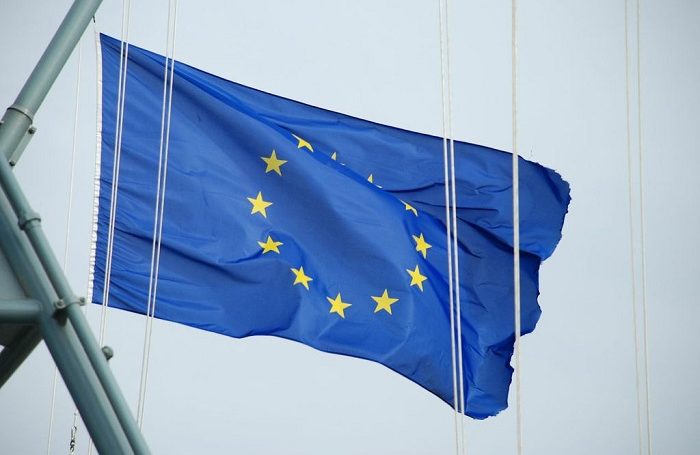
Brexit has generated a broad debate in the EU defence community. On one side are those who emphasize the negative aspects of Brexit, because it deprives the EU from a potential key military player. On the other side are those who claim that EU member states can benefit from the withdrawal of a traditional veto player to deepen EU defence integration.
Both arguments are reasonable. However, both neglect to consider the consequences of Brexit for defence procurement and armaments cooperation. In regard to these issues, Brexit could be a win-win situation, for both the EU and for the UK. There are two main reasons. First, Brexit need not damage EU-UK defence-industrial relations. Second, Brexit will force EU countries to take important steps towards greater coordination of defense. These initiatives are likely to have a positive effect on EU defence budgets, and may also generate a spillover effect in the UK.
Three main factors explain why Brexit will not damage European armaments cooperation.
- The impact of EU common market directives on defence procurement was very limited even before Brexit. UK defence procurement is based on the concept of “open procurement”, aimed to fulfill UK defence requirements through open competition on the domestic and global market. This key principle will not change despite the decision to exit the EU.
- Despite its skepticism towards EU defence policy, the UK has been a very reliable industrial partner, as evidenced by its commitment to the production of the Eurofighter Typhoon or the pan-European A400M aircraft. These programmes are developed through intergovernmental agreements, disconnected from the EU’s communitarian framework. It is unlikely that these large-scale programmes will be affected by what happens in the EU defence policy framework. Instead, bilateral cooperation will continue to develop. For example, the Lancaster House Treaties, signed by Sarkozy and Cameron in 2010, have been substantially expanded in recent years, independently of both NATO and the EU.
- Many analysts predict that Brexit will harm the interests of European defence companies settled in the UK. Yet, this need not be the case. The Italian company Leonardo-Finmeccanica is an interesting case in point. This Italian company owns the helicopter factory at Yeovil (the former AgustaWestland) as well as 27 other industrial sites across Britain. UK-Italian defense industry links are based on economic incentives, and are not covered by any substantive body of intergovernmental agreements, so the scope for EU interference is greater than for Anglo-French ventures. Yet, it is in the interest of both parties to avoid disrupting their industrial cooperation. The CEO of Leonardo-Finmeccanica, Mauro Moretti, has said that he expects his company’s strong technological leadership in the electronic business to allow the Italian group to continue to play an important role in the British aeronautic sector. The British government has already declared its intention to maintain a commitment to invest some 800 million euro for logistic support and maintenance of 55 AW 101 Merlin helicopters up to 2020.
As far as European armaments cooperation is concerned, the most likely scenario after Brexit is “business as usual”.
Moreover, observers may underestimate the positive political fallout of Brexit for both the UK and the EU. EU member states and institutions are currently pushing further towards the development of joint operational capabilities. The EU’s Global Strategy and the Implementation Plan on Security and Defence are two steps in this direction. On 28th October 2016, the European Defence Agency (EDA) and the EU Commission signed an agreement to develop the first pilot project in defence research. As noted by an expert of the EU Institute for Security Studies (EUISS): “While the pilot project will run for three years from 2015 to 2018, it sets the groundwork for defence research to become a permanent feature of the EU’s defence efforts. The pilot project could have a “snowball effect”.
A greater focus on defence industrial issues among the EU-27, might also create a “spillover effect” in the UK, since London would fear being marginalized in a key sector for its national economy. The UK could thus be forced to increase its defense spending to support its defence industrial groups. Moreover, the UK could re-launch bilateral or multilateral cooperation projects in order to save costs, and to develop weapons required by the UK armed forces. In the first pilot project on defence research UK is involved in two out of three programmes and it leads the EuroSWARM project, aimed to develop unmanned swarm of sensor platforms. In order to remain involved in such EU-funded activities the UK could probably negotiate an administrative arrangement with the EDA and thereby contribute to EU capability initiatives. This would be in the interest of both the EU and the UK.
In conclusion, the political momentum on defence industrial matters generated by the Brexit vote means that Brexit could have a positive impact on defense both in Europe and in the UK. A stronger EU defence policy and privileged forms of cooperation with the UK on production and procurement could be a decisive turn for the long-standing problem of European defence capabilities shortfalls.
Further Reading on E-International Relations
- Anglo-French Defence Relations are Crucial for European Defence after Brexit
- Brexit and the 2019 European Elections
- The Decline of the SDLP and their European Election Brexit Headache
- An ‘Expert’ Perspective on Brexit… Means Brexit
- Grexit and Brexit: Lessons for the European Union
- Post-Brexit EU Defence Policy: Is Germany Leading towards a European Army?